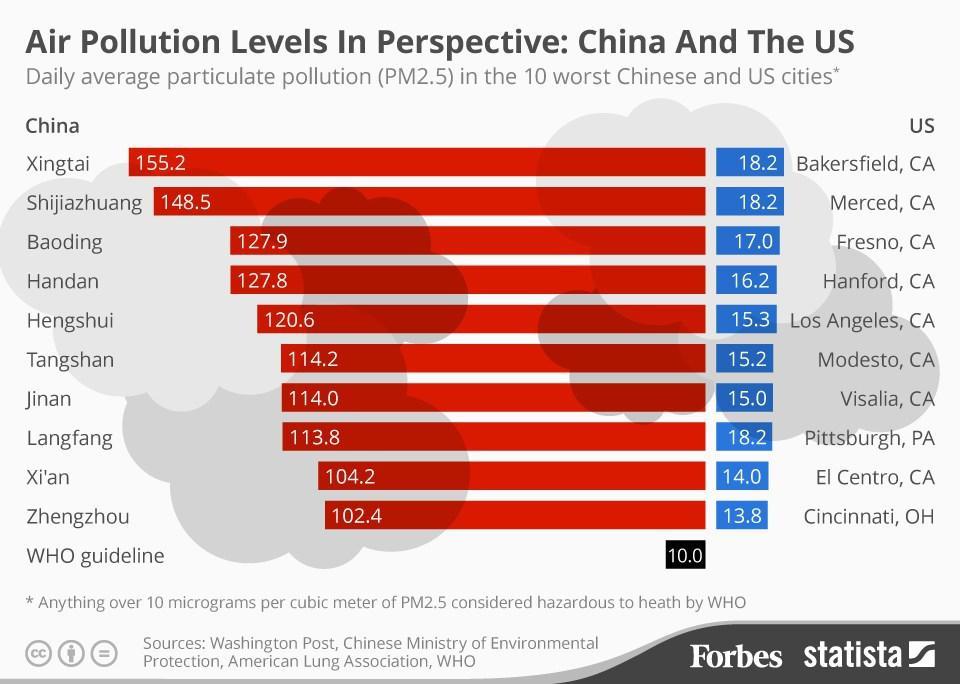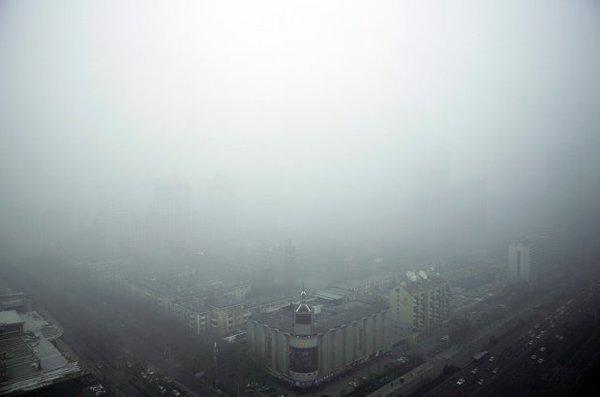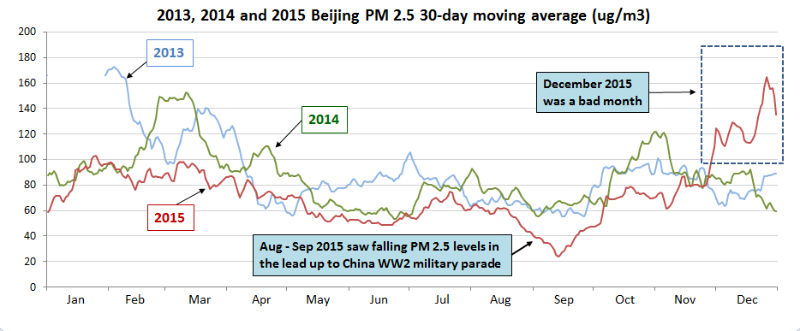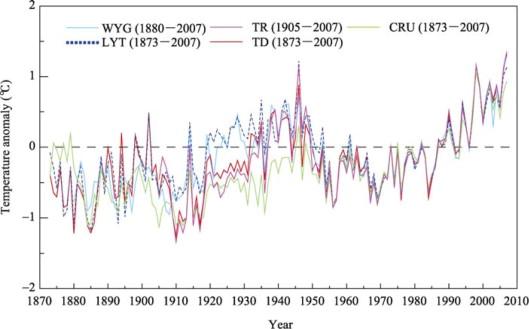by Wei Guo (ELP 2016) | Master's Student, National School of Development, China
China’s economy continues to grow at a rate of more than 7% annually, as it has for more than two decades. Like any country now or in history experiencing an economy boom driven by manufacturing industry, China’s economic growth has an environmental dark side. China now boasts five of the ten most polluted cities in the world, and on PM2.5 side, even the tenth worst city in China is five times polluted more than the first in US.
Figure 1. Daily average particulate pollution (PM2.5) in the 10 worst Chinese and US cities in 2015 (1)
Unfortunately, after more than 15 years of this rapid growth without public awareness of environment problems, it was not until several extreme air pollution events occured since 2013 that Chinese public and authorities started to think about actual or potential deterioration of environment due to economic activities. I started to do research on environmental economics in 2012, which was a dull subject then, but now there has been an explosion of interest in the environment. Ironically, extreme air pollution is driving new visions of sustainability and new formats of interaction between political authorities and the people. The following picture is a typical air pollution disaster in Beijing, China, however, this is not an extreme case in Beijing’s winter. Every winter in the past three years, Beijing residents have suffered visible air pollution at least this severe or even more severe than this.
Figure 2. PM2.5 levels hit 976 in Beijing suburbs, 12:07 PM - 1 Dec 2015
Figure 3. 2013, 2015 and 2015 Beijing PM2.5 30-day moving average (2)
In the past few days with fantastic and impressive ELP lectures, what impressed but also humbled me most, is China’s public ignorance to climate change around us. Air pollution and carbon dioxide are different things in China. For example, Chinese people start to care about clean coal, but “clean” here means low sulfur. One Chinese clean energy target is to increase natural gas to 10% of the power mix, but policy makers ignore its environmental effect on global warming. The Chinese government has been under pressure internally to take action on air pollution to bring improvements in air quality, but this only brings a limited glimmer of hope in climate change. Even if data tells us that China’s overall mean annual temperature has significantly increased over the past few decades, from China’s past experience, it’s sad to admit that, in lack of severe meteorological disaster events in big cities, Chinese public awareness of climate change is unlikely to rise remarkably. In fact, in a survey conducted by China Center for Climate Change Communication (jointly established by the Research Center for Journalism and Social Development of Renmin University and Oxfam Hong Kong) in 2012, 93 percent of respondents say they know at least a little about climate change, but only 11 percent say they know a lot. Not knowing that he is ignorant, is double ignorance.
Figure 4. Annual mean temperature anomaly series (relative to 1971-2000) in China (3)
Luckily or unluckily, in the future, the Earth's warming will lead to more frequent emergence of extreme weather and climate event, and China will not be immune. The Chinese public and authorities will attach better importance to climate change and make this challenge a priority. This is a challenge and a chance for environmental scholars, for leaders, and for the world as well.
(1) https://www.statista.com/chart/3161/air-pollution-levels-in-perspective/
(2) http://chinachristiandaily.com/2016-01-27/society/china-air-pollution--80--of-cities-in-breach-of-national-standards_464.html
(3) Tang G, Ding Y, Wang S, et al. Comparative analysis of China surface air temperature series for the past 100 years[J]. Advances in Climate Change Research, 2010, 1(1): 11-19.




